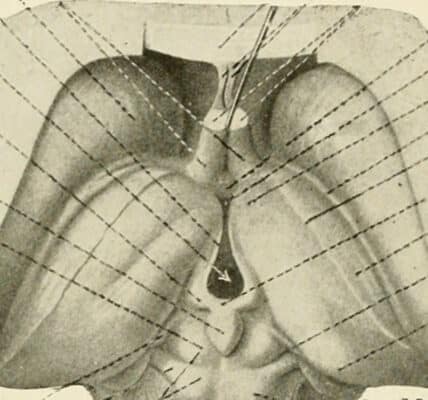$6.2 Million Wellcome Award for Non-Addictive Painkiller Research

An international team of researchers has been awarded a $6.2 million Wellcome Trust Discovery Award for work developing a non-addictive painkiller. The grant was announced in early February. The three researchers are:
- Carrie K. Jones, Vanderbilt Warren Center for Neuroscience Drug Discovery
- Craig W. Lindsley, director of the Warren Center for Neuroscience Drug Discovery
- Andrew Tobin, Director of the Advanced Research Centre at the University of Glasgow School of Molecular Biosciences
Their work together involves finding an M5 receptor agonist that would block the addictive properties of opioids while also blocking pain. The work is based on preliminary research at the Warren Center for Neuroscience Drug Discovery that “inhibition of the M5 receptor by small drug-like molecules […] significantly reduces the addictive properties of opioids without altering their pain-relieving actions.”
The award is for future preclinical studies into the prevention of opioid addiction using M5 receptor blockers. Tobin is the author of several studies involving the M5 receptor, a protein that regulates acetylcholine in the nervous system. An article which Tobin contributed to in ACS Chemical Neuroscience states:
The M5 muscarinic acetylcholine receptor (mAChR) has emerged as an exciting therapeutic target for the treatment of addiction and behavioral disorders.
The Glasgow Chamber of Commerce, in writing about the award, says initial work with mice indicates M5 receptor agonists “significantly reduce the addiction” while “still maintaining pain relief.” Tobin told the Chamber:
We believe that developing new medicines that inhibit the M5-receptor, which can be taken alongside prescribed opioids, will be the key to the safe use of opioid analgesics.
We recently wrote about another kind of breakthrough in non-addictive painkillers. The U.S. Food and Drug Administration (FDA) approved the use of suzetrigine for the treatment of moderate to severe acute pain. Suzetrigine takes the approach of blocking pain signals at the source, so they never reach the brain. It works better than a placebo, but not better than a combination of acetaminophen and an opioid painkiller.
The M5 receptor agonist, on the other hand, rides along with the opioid painkiller, but somehow keeps it from becoming addictive. Both of these breakthroughs are wonderful news in the race to develop non-addictive painkillers that really work.
Written by Steve O’Keefe. First published February 24, 2025.
Sources:
“Wellcome Trust Discovery award advances international collaboration to combat opioid misuse and addiction,” Vanderbilt University Research News, February 10, 2025.
“Identification of a novel allosteric site at the M5 muscarinic acetylcholine receptor,” ACS Chemical Neuroscience, August 2021.
“New research seeks to find new ways to target opioid addiction,” Glasgow Chamber of Commerce, February 6, 2025.
“Vanderbilt neuroscience researcher awarded $6.2M,” Nashville Post, February 10, 2025.
Image Copyright: Matt Brown, used under Creative Commons license.




